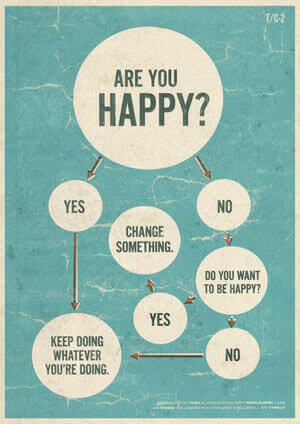What age can woman get menopause
Menopause is the time that marks the end of your menstrual cycles. It's diagnosed after you've gone 12 months without a menstrual period. Menopause can happen in your 40s or 50s, but the average age is 51 in the United States. Menopause is a natural biological process. But the physical symptoms, such as hot flashes, and emotional symptoms of menopause may disrupt your sleep, lower your energy or affect emotional health.
SEE VIDEO BY TOPIC: Women at Menopause: Symptoms, When to See Your Physician (Denicia Dwarica, MD)SEE VIDEO BY TOPIC: Early Menopause – Mayo Clinic Women’s Health ClinicContent:
Premature and early menopause
While the average age of menopause is 51, there's a year range in which you might start to feel symptoms. Certain factors can affect when this change of life will happen to you. There is no set age at which all women will start to go through menopause. The average age of menopause in the United States is 51, but it is considered perfectly normal for a woman to go through it at any time between the ages of 35 and 59, says Lila Schmidt, MD, a reproductive endocrinologist in private practice in San Diego.
It is not known why some women get signs of menopause in their mid to late thirties or early forties. Some women think that if their periods start early, they will stop early as well. If you do stop menstruating before you turn 40, you should be tested to make sure that your missed periods are due to menopause and not some other cause. Also note that changes in your cycle might be gradual.
Schmidt says. Menopause is a process that can take several years to be complete. One reason menopause could begin early, Schmidt says, is radiation to the pelvis, which can damage your ovaries and affect estrogen production. Probably the biggest factor is the age at which your mother and siblings went through menopause — although this only applies to female relatives who experienced menopause naturally meaning, not surgically or by inducement, as with a hysterectomy.
Stress, excessive exercise, treatments for breast cancer , certain medical conditions, and autoimmune diseases — basically, anything that causes your ovaries to produce less of the hormones estrogen and progesterone — may accelerate menopause, Schmidt says.
The age at which menopause begins may affect your risk for certain diseases. According to the National Institutes of Health, if you start your periods early before age 12 and go through menopause late after age 55 , you have an increased risk for breast cancer.
While this is a risk factor over which you have no control, you can help protect yourself with regular breast cancer screenings. However, the study also found that if you experience those symptoms later in menopause, you could be at increased cardiovascular risk.
The bottom line: You have your own unique biological clock, and it will determine when you start to have symptoms of menopause, Schmidt says. By subscribing you agree to the Terms of Use and Privacy Policy.
Health Topics. By Beth W. Last Updated: November 21, Why Menopause May Begin Earlier for Some Women One reason menopause could begin early, Schmidt says, is radiation to the pelvis, which can damage your ovaries and affect estrogen production.
Other factors that may influence when menopause starts include: Smoking. Researchers in Japan questioned about 1, women who were postmenopausal when they came for their gynecologic exams.
They found that women whose fathers smoked while their mothers were pregnant with them went through menopause more than a year earlier than those from households where the men did not smoke. However, more work is needed to explain the link. Eating disorders. Women with eating disorders such as anorexia nervosa or bulimia nervosa may reach menopause at an earlier age than they would have otherwise.
Menopause Onset and Health Risks The age at which menopause begins may affect your risk for certain diseases.
The menopause
In the lead-up to menopause, your ovaries may not produce an egg each month. This can lead to changes in the hormones circulating in your body. Specifically, oestrogen levels may be increased and progesterone levels may be lower. After menopause, oestrogen levels also fall considerably. Menopause usually occurs naturally at around age 50 but may happen earlier due to chemotherapy, radiation treatment or surgery.
The purpose of the Southern Cross Medical Library is to provide information of a general nature to help you better understand certain medical conditions. Always seek specific medical advice for treatment appropriate to you. This information is not intended to relate specifically to insurance or healthcare services provided by Southern Cross. Medical Library Topics.
Menopause, Perimenopause and Postmenopause
The Menopause Guidebook. Member Log In. Are We There Yet? Ahh, the menopause journey. No clear starting or ending point, odd diversions, and an estimated time of arrival that could span years. Menopause is certainly a trip. And needless to say, you could use some turn-by-turn directions.
Menopause - signs, symptoms, treatment
While the average age of menopause is 51, there's a year range in which you might start to feel symptoms. Certain factors can affect when this change of life will happen to you. There is no set age at which all women will start to go through menopause. The average age of menopause in the United States is 51, but it is considered perfectly normal for a woman to go through it at any time between the ages of 35 and 59, says Lila Schmidt, MD, a reproductive endocrinologist in private practice in San Diego. It is not known why some women get signs of menopause in their mid to late thirties or early forties.
Victorian government portal for older people, with information about government and community services and programs. Type a minimum of three characters then press UP or DOWN on the keyboard to navigate the autocompleted search results. Menopause occurs when a woman stops ovulating and her monthly period menstruation ceases. Most women reach menopause between the ages of 45 and 55, with the average age being around
At What Age Will You Enter Menopause?
Menopause is a stage in life when you stop having your monthly period. Menopause typically occurs in your late 40s to early 50s. However, women who have their ovaries surgically removed undergo "sudden" surgical menopause. Natural menopause — menopause that happens in your early 50s and is not caused by surgery or another medical condition — is a normal part of aging.
However, for many women this natural process is a time of anxiety and distress due to the various symptoms that can accompany it. Some menopausal changes can also be brought about by treatments for cancer, including chemotherapy, ovarian ablation and hormone therapy. Whatever their cause, this fact sheet aims to explain just what these changes are, and what you can do to make things easier. Usually, this occurs between the ages of 45 and In the UK the average age is
What age do women go through menopause at?
If you buy something through a link on this page, we may earn a small commission. How this works. Menopause is a transition into a new phase of life. It begins when the menstrual cycle finishes. Menopause is not a health problem, and some experience it as a time of liberation.
All A-Z health topics. View all pages in this section. Primary ovarian insufficiency POI is a term that is often used to mean the same thing as premature menopause, but it is different.
Data Protection Choices
Back to Health A to Z. The menopause is when a woman stops having periods and is no longer able to get pregnant naturally. Periods usually start to become less frequent over a few months or years before they stop altogether.
What to expect during menopause
.
.
.
About menopause
.
.
-
No comments yet.





